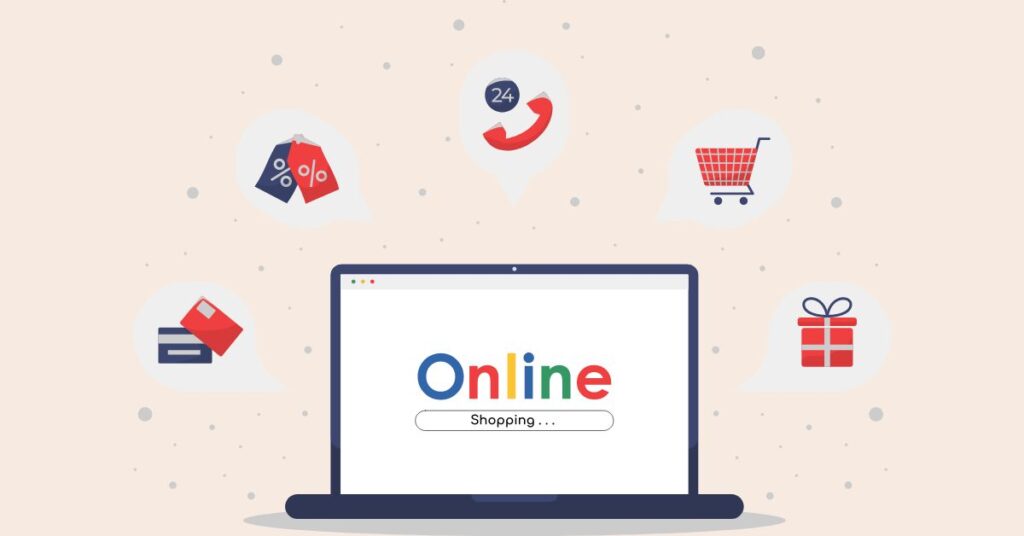Product Sourcing for eCommerce
Product sourcing is finding and acquiring products from suppliers to sell in your e-commerce store. This process is critical for any e-commerce business as the products you sell are the heart of your business, and the quality of your products will directly affect your customer satisfaction and revenue. Without good product sourcing, your e-commerce store is at risk of failure.
The importance of product sourcing for e-commerce cannot be overstated. Sourcing the right products is essential to the success of your e-commerce business. The right products will attract and keep customers returning, while the wrong ones will drive customers away and lead to low sales. The success of your e-commerce store depends on your ability to identify products that meet the needs and wants of your customers and then source those products from reliable suppliers.
The purpose of this blog post is to provide a comprehensive guide to product sourcing for e-commerce. We will cover everything you need to know about product sourcing, including the types of product sourcing, the factors to consider when choosing a product sourcing method, the steps to successful product sourcing, and tips for optimizing product sourcing for e-commerce.

Understanding Product Sourcing for E-commerce
Let’s start by understanding the two main types of product sourcing: domestic and international.
Domestic sourcing involves purchasing products from suppliers within your country, while international sourcing involves buying products from suppliers in other countries.
Both methods have pros and cons; your choice will depend on your business needs and budget.
When choosing a product sourcing method, you must consider several factors. Cost is one of the most important factors to consider.
You need to find a supplier that offers products at a price that allows you to make a profit while remaining competitive in the market.
Quality is another critical factor. You must ensure that the products you source meet the standards and expectations of your customers. Delivery time and supplier reputation are also important factors to consider. A supplier that consistently delivers products on time and has a good reputation will help you build a positive brand image and retain customers.
Steps to Successful Product Sourcing for E-commerce
Once you have identified the product sourcing method that suits your business needs, you must follow a series of steps to ensure successful product sourcing.
These steps include identifying your product needs, researching potential suppliers, evaluating potential suppliers, and negotiating terms with suppliers.
For example, to source handmade leather bags, you must identify the styles, colors, and sizes you want to offer in your store. Then, you can research potential suppliers by using online directories, attending trade shows, and asking for referrals.
Once you have a list of potential suppliers, you should evaluate them based on their product offerings, prices and terms, and reliability. Finally, you can negotiate terms with the suppliers that meet your requirements.

Tips for Optimizing Product Sourcing for E-commerce
To optimize your product sourcing for e-commerce, you must build relationships with your suppliers, diversify your suppliers, monitor supplier performance, and adjust your sourcing strategy as needed.
Building relationships with your suppliers can help you get better deals and ensure a reliable supply of products. Diversifying your suppliers can help you mitigate the risks of depending on one supplier.
Monitoring supplier performance can help you identify any issues and address them promptly. Finally, adjusting your sourcing strategy as needed can help you stay competitive and meet changing customer demands.
Methods Suppliers and Manufacturers Offer To Buyers
When it comes to product sourcing for e-commerce, there are various methods that suppliers and manufacturers offer to buyers. One of these methods is white labeling, a popular option for businesses that want to sell products under their brand name.
In this method, the supplier or manufacturer produces a product with the buyer’s branding, label, and packaging, making it appear that the buyer created the product. White labeling is a cost-effective way for businesses to enter a new market or add a new product line to their existing offering.
For example, a health and wellness company specializing in supplements may want to add a new line of skincare products to its offering. Instead of developing skincare products from scratch, they can use a white-label skincare manufacturer to produce them with their own branding and packaging.
Another method that suppliers and manufacturers offer to buyers is private labeling. Private labeling is similar to white labeling, but the buyer controls the product development process more.
In this method, the buyer works with the supplier or manufacturer to develop a product according to their specifications. The product is then produced with the buyer’s branding, label, and packaging. Private labeling allows businesses to create unique products that meet customers’ needs and preferences.

For example, a pet supply store may want to create a line of organic and grain-free dog food. By working with a private-label pet food manufacturer, they can develop a recipe that meets their specifications and produce the product with their own branding.
Dropshipping is another method that suppliers and manufacturers offer to buyers. In this method, the supplier or manufacturer ships the product directly to the buyer’s customer, eliminating the need for the buyer to hold inventory or handle shipping.
The buyer lists the product on their e-commerce store, and when a customer purchases, the buyer orders the product from the supplier or manufacturer. The supplier or manufacturer then ships the product directly to the customer.
Dropshipping is a low-risk way for businesses to test new products or enter a new market. For example, a fashion boutique may want to add a new line of accessories.
Using a dropshipping supplier for the accessories, they can list the products on their e-commerce store without holding inventory or investing in product development. Suppliers and manufacturers offer various methods to buyers for product sourcing, including white labeling, private labeling, and dropshipping.
These methods can help businesses enter new markets, add new product lines, or test new products without investing in product development or holding inventory. By choosing the method that best fits their business needs and working with reliable suppliers or manufacturers, businesses can ensure the success of their e-commerce store.

Companies You Can Use To Source Products
If you’re an e-commerce business owner, you know how important it is to find reliable suppliers to provide you with quality products. With so many options available, figuring out where to start can take time.
To help you, we’ve compiled a list of seven companies from which e-commerce business owners can source products and the type of products these businesses offer.
- Alibaba – Alibaba is one of the largest online marketplaces in the world, connecting buyers with manufacturers and suppliers. They offer various products, including electronics, clothing, and home goods. E-commerce business owners can source products from Alibaba at wholesale prices.
- Oberlo – Oberlo is a popular dropshipping platform that allows e-commerce business owners to find products to sell without holding inventory. They offer a wide range of products, including clothing, electronics, and beauty products.
- Doba – Doba is a dropshipping platform that connects e-commerce business owners with suppliers and manufacturers. They offer various products, including electronics, toys, and pet supplies.
- SaleHoo – SaleHoo is a directory of wholesale suppliers and manufacturers that e-commerce business owners can use to source products. They offer a wide range of products, including clothing, jewelry, and sporting goods.
- Spocket – Spocket is a dropshipping platform that connects e-commerce business owners with suppliers in the United States and Europe. They offer various products, including clothing, accessories, and home goods.
- AliExpress – AliExpress is another online marketplace owned by Alibaba that offers a wide range of products at wholesale prices. E-commerce business owners can source products from AliExpress to sell in their e-commerce stores.
- Wholesale2B – Wholesale2B is a dropshipping platform that connects e-commerce business owners with suppliers and manufacturers. They offer a wide range of products, including electronics, home goods, and pet supplies.
There are various companies where e-commerce business owners can source products, including Alibaba, Oberlo, Doba, SaleHoo, Spocket, AliExpress, and Wholesale2B.
The type of products that these businesses offer range from electronics and clothing to pet supplies and home goods. By choosing the right supplier or manufacturer and finding quality products to sell, e-commerce business owners can ensure the success of their online store.

That’s A Wrap
In conclusion, product sourcing is a critical process for any eCommerce business. Sourcing the right products from reliable suppliers can help you attract and retain customers, build a positive brand image, and increase revenue. By following the steps outlined in this guide and implementing the tips for optimizing product sourcing, you can ensure the success of your e-commerce store.







